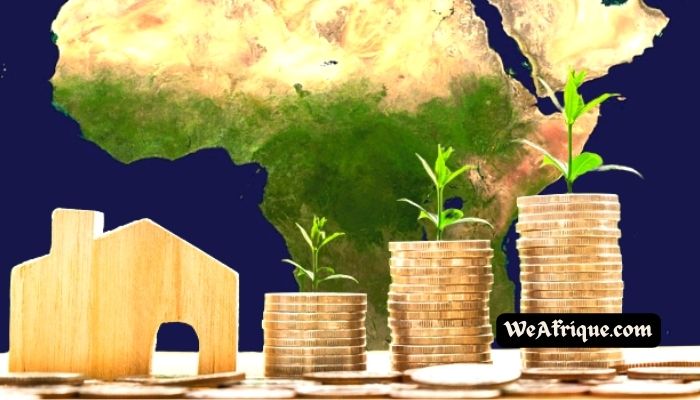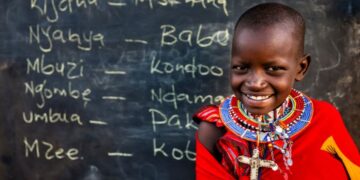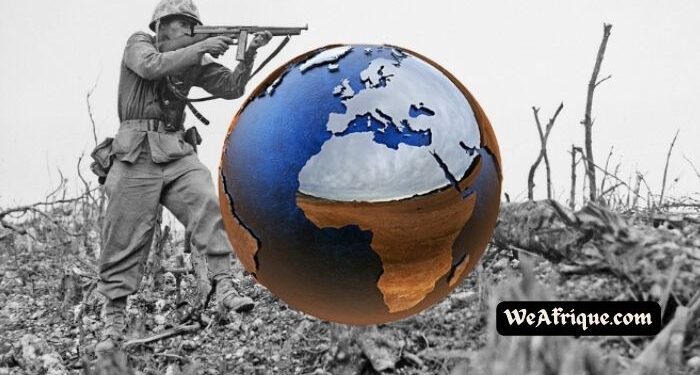The second World War lasted about 6 years from 1939 to 1945 and it left people dead while the European economy collapsed. Nonetheless, the war helped Africa grow in the aspects of economic and infrastructural growth. It also helped in building strong African nationalism. Here are all the ways the war helped Africa.
How the Second World War Led to Africa’s Political Freedom
WWII was a major stepping stone for African nationalism. It guided the continent’s leaders to fight for a common goal and strong nationalism that led to the freedom of many nations from colonialists.
The second World War as in the first saw many Africans fighting alongside their colonialists. In the report of journalist and writer Basil Davidson, Africa learned military knowledge and leadership skills through WWII which later helped nations in their struggles for independence.
It also helped them to learn how to communicate and work together rather than fighting each other as in ancient times.
More on how WWII helped Africa’s nationalism was how European soldiers received medals and awards for their bravery while other African brave soldiers were only given pats on their backs and tickets. The act made many Africans angry and it further led to their determination to become independent.
WWII also opened the minds of many Africans who viewed the western people as superior. The war led them to see that like Africans, the Europeans who had conquered their territories and had been colonizing them could also bleed, cry, and be killed.
The new development registered in the minds of Africans that the Europeans were not undefeated and the fight for anti-racism and anti-colonialism became stronger.
The Second World War Contributed to Long-run Economic Boom in Africa

At the time of the Second World War, many western economies failed and there was a need for food and mineral resources. Africa played a vital role in providing agricultural and mineral resources to its colonies.
This forced a lot of African nations to go into mass production of food and other materials for exportation. Some of these African countries faced poverty due to heavy production and exportation.
Nonetheless, in the long run, some of them increased production, and countries such as Mozambique and Senegal faced improvement. For instance, Mozambique became self-sufficient in the production of wheat, rice, and sugar among other key things.
By the time the war had ended, a lot of African countries had found their footing in production and exportation which has helped in the financial rise of many nations.
More about how the war contributed to the economic growth of Africa, there was the rise of industrialization since there was unrest in the western world. For instance, industries for processing flour, soap, cigars, boot polish, and leather production began. Countries such as Nigeria that made large production are still known for having major industries scattered across the continent.
Also, prior to the war, some Portuguese colonies reportedly objected to industrialization. However, the war contributed to the need for these colonies to start companies and manufacture several commodities. Some of these countries are Mozambique and Angola.
In addition, France rewarded its colonies in Tropical Africa for their loyalty and contribution to the war. The reward was in the form of a full pension given to Africans who fought in the war.
See Also: 5 Greatest African Empires And How They Fell
Scientific and Technological Growth in Africa as a result of WWII
Generally in the world, WWII helped the growth of science and technology, including in Africa.
One of the major technological upgrades for Africa was the beginning of the creation of modern arms although Africans have seen many of these weapons and were exposed to them a great number of ancient times.
However, following the war, some of these Africans began the production of modern weapons and were more familiar with how to use them.
It is however worthy of note that some of the production of these weapons is a double-edged growth as it reportedly contributed to the lasting cold war in some regions of the continent.
Some countries that have developed their economies and have helped their military using the production of weapons are Egypt, South Africa, Ethiopia, and Nigeria.
During the war, cavity magnetron was highly used as it helped in the production of microwave, oven, and prewar radar technology.
This technology started in America at the time of the war but quickly reached Africa and has since helped to make life easier in terms of kitchen-related work and also in the aspect of tracking, locating, and recognizing objects from a considerable distance using radar technology.
Also, many African countries have learned the production of some of these technological appliances, thereby increasing economic growth by production in later years. It basically led to exposure to modern technology.
The Second World War Helped Africa by Upgrading Medicine
During the war, individuals and organizations in different parts of the world devised means to improve blood transfusion, skin grafts, psychology, and many other aspects of health. While Africa may not have necessarily created some of these medical improvements, most of the creations are used around the continent over the years and health has been improved,
Among the famous medicine produced at the time was penicillin which was nicknamed the “miracle drug”. The drug was founded in 1928 but was commercially released during WWII.
It was the first true antibiotic and is the bedrock of many other antibiotics that have saved lives across the world, including Africa.
WWII Gave Birth to the United Nations
The United Nations was founded in 1945, the same year that the war ended. The organization has over 193 member states, including 54 African countries.
Since its inception, the UN has helped its member countries to promote the development of democratic institutions and establish peace between warring nations. It has also supported the economic and social development of African countries as well as promoting human rights.
Among the major aid given by the UN to African countries is the release of $15 million from its rapid response fund to help humanitarian operations in South Sudan when it was torn by war.
The organization has helped several other parts of Africa torn by war and has also promoted education and is providing shelter to refugees.




















